The M17/M18: Putting the modular in the Modular Handgun System
- By Travis Pike
Share This Article
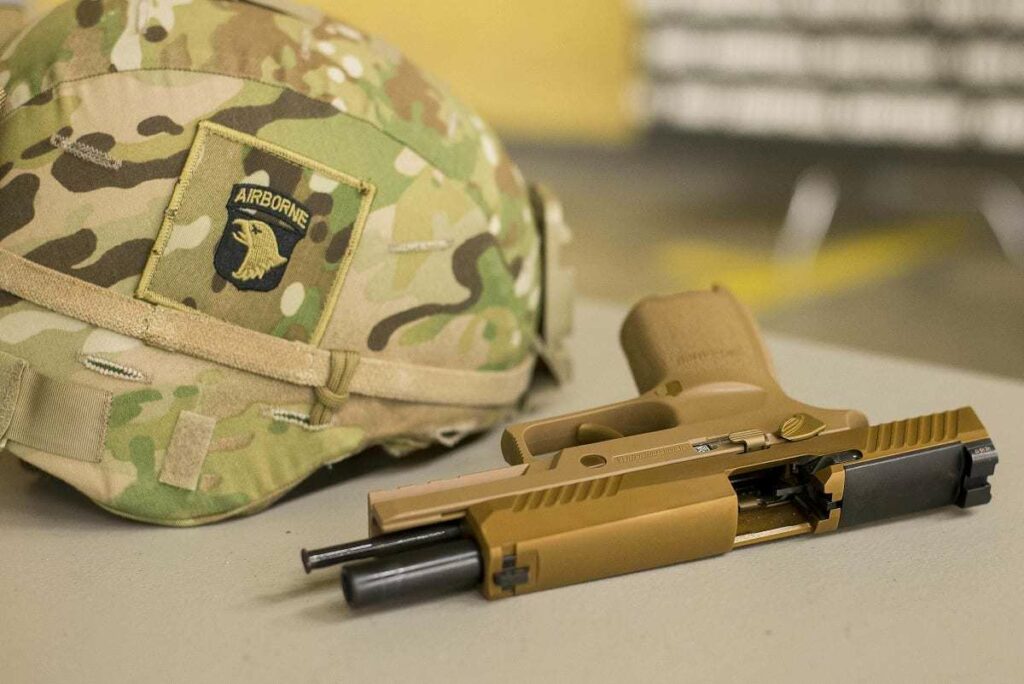
In 2017 it was announced that SIG Sauer had won the modular handgun contest. The Army had spent a lot of time and way too much money deciding on the next sidearm to be issued. The Beretta M9 would be replaced by the winner of the Modular Handgun System. Beyond the Beretta, the military also wanted to replace the M11 and M9 General Officer’s gun. As such, the Modular handgun would actually be two guns, and thus the M17/M18 was developed. CZ, Beretta, Smith and Wesson, FN Herstal, Glock, Kriss USA, and STI all were beaten by SIG Sauer.
The M17/M18 series would replace three guns total and modernize the military’s choice of sidearm. After the Army declared the M17/M18 the winner, it was slowly announced that the Navy, Air Force, and Marine Corps would also be adopting the M17/M18 series. The modular handgun was a winner, but what made it so modular? Today we will explore what modularity means in general and how it specifically applies to a handgun.
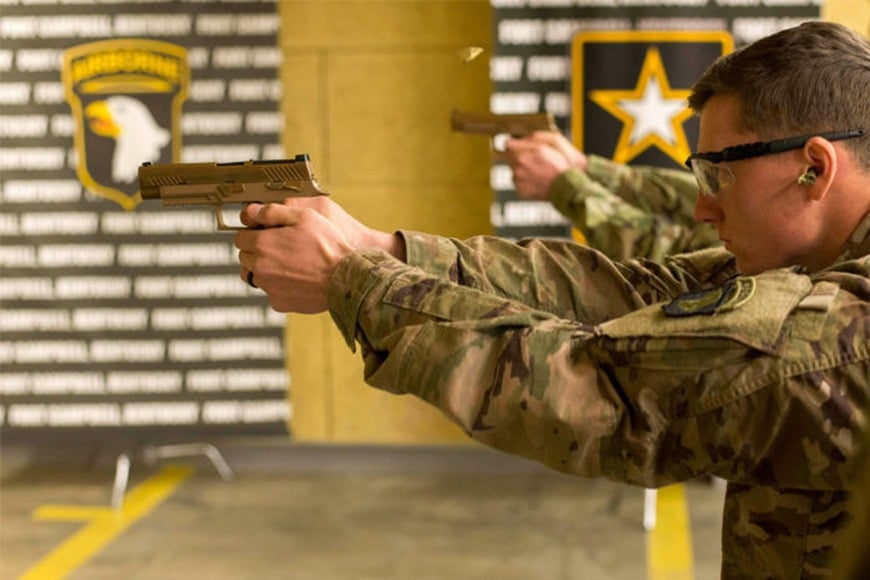
The military learned that modularity matters. The M4’s success is directly tied to its modularity and ability to be customized to mission-specific use. The MHS aimed at bringing that customization to the M17/M18. Today I don’t have an official M17/M18, but I do have a P320, which became the M17 and M18 handguns. While it won’t be a direct comparison, my P320 will illustrate the modular handgun.
Related: M1919: The machine Gun That Just Wouldn’t Quit
The core of the M17/M18 – The FCU
Modularity matters because not every mission and task is the same. The military has to take into account different environments, jobs, tasks, and missions. The infantryman has different requirements than the human intelligence (HUMINT) Soldier or Marine.
An infantryman works best with a full-sized fighting handgun, potentially equipped with a weapon-mounted light, a 21-round magazine, and a red dot optic. The HUMINT guy or gal might need to conceal a pistol, so they want a smaller weapon without the optic, light, and 21-round magazine. The M17 and M18 provide a full-sized and carry model, respectively.
They are effectively the same weapon, just different sizes. That decreases training requirements by simplifying the manual of arms.

At the same time, logistics are improved and simplified between the two roles and different guns.

Inside the M17/M18 series sits what SIG calls a Fire Control Unit. All pieces, outside of the magazine release that makes the P320 tick, are part of the FCU. The FCU is the serialized portion of the weapon and is considered the actual “firearm” by law. This allows the internals to be popped in and out of the gun for easy maintenance and also allows for extreme modularity.

The FCU can be swapped to different grip modules and accommodate different slide sizes to grow or make the gun smaller. My P320 has a compact grip module, an all-metal full-sized grip module, and a subcompact aftermarket S300 grip module. I can quickly swap between gun sizes for different tasks. The same goes for the M17/M18 pistols.

M17/M18 beyond the FCU
Beyond the ability to swap slides and grip modules, the M17/M18 offers a wide variety of customization options. First, the Picatinny rail allows you to attach lights and other accessories. This includes IR lasers for night vision aiming. The top of the optic is cut for one; although optics on handguns seem silly wait until you use one.

These mini red dots make your weapon easier to shoot in all ways. You can shoot faster, farther, and with more accuracy. Red dots can help take the challenge out of pistol shooing and will make the soldier armed with a handgun more lethal.

The MHS contest also called for the ability to mount suppressors. Suppressors are gaining more and more acceptance in the military world and could be important for the special ops dudes doing sneaky things in bad places. The M17/M18 allows the user to swap sights on demand, something the issued M9 and M1911 simply couldn’t do.
Related: Light Rifle Program: The Failures That Led to the M1 Carbine
Long-term use
Modular weapons often stick around longer than less modular designs. If you can constantly and easily improve a weapon, why get rid of it? We saw that very line of thought with the M4 and M16 rifles. That same future could exist for the M17/M18 handguns.
While it’s not on the table yet, the M17/M18 can be easily modified by the United States military as it sees fit. In the future, we could see grip modules with integrated light or IR lasers, and we could see smaller or larger systems depending on the needs of the user.

SIG has begun developing a very short and light suppressor that is integral to a P320 slide. This would allow for easy holstering and carrying of a suppressed pistol by general forces. Companies like Flux Defense have produced kits that turn the P320 into a short and light carbine by adding a stock and foregrip to the design.
As the P320 gains popularity, we are likely to see a wide variety of upgrades, changes, and additions to this handgun. When appropriate and necessary, they could be adopted by the military en masse or in small numbers for special units and tasks.

The M17/M18 series of handguns is likely to live a long service life and see continued improvements. At this point, they do represent a very modern option on par with any modern duty handgun. Yet, they offer a higher level of modularity that will likely keep them in service until we decide on a new caliber.
Read more from Sandboxx News
Related Posts
Sandboxx News Merch
-

A-10 ‘Thunderbolt Power’ Poster
$22.00 – $28.00 Select options This product has multiple variants. The options may be chosen on the product page -
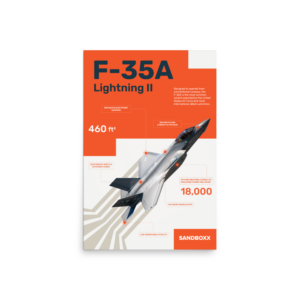
F-35 ‘Lightning’ Poster
$22.00 – $28.00 Select options This product has multiple variants. The options may be chosen on the product page -

F-35 ‘Evolution’ Poster
$22.00 – $28.00 Select options This product has multiple variants. The options may be chosen on the product page

Travis Pike
Travis Pike is a former Marine Machine gunner who served with 2nd Bn 2nd Marines for 5 years. He deployed in 2009 to Afghanistan and again in 2011 with the 22nd MEU(SOC) during a record-setting 11 months at sea. He’s trained with the Romanian Army, the Spanish Marines, the Emirate Marines, and the Afghan National Army. He serves as an NRA certified pistol instructor and teaches concealed carry classes.
Related to: Breaking News, Gear & Tech
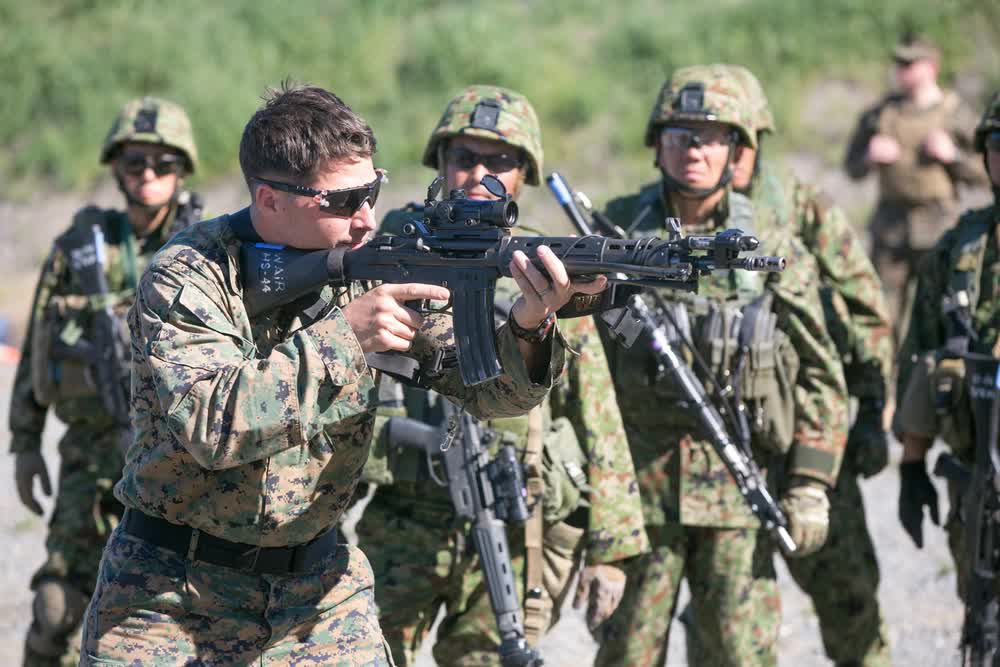
Marine Corps new marksmanship plan will make Marines more lethal
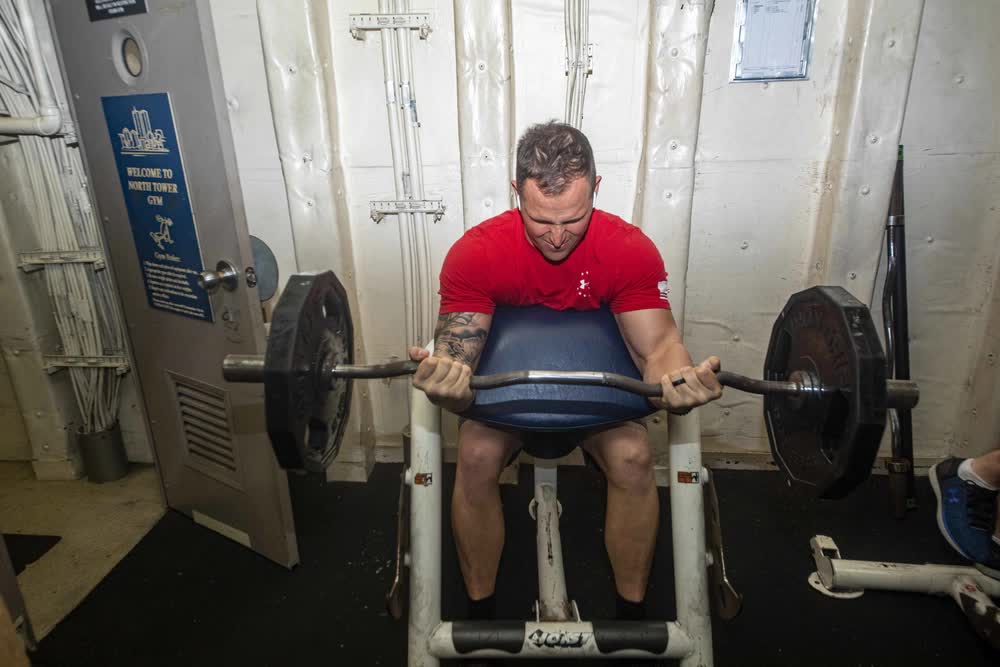
How troops survive long deployments at sea
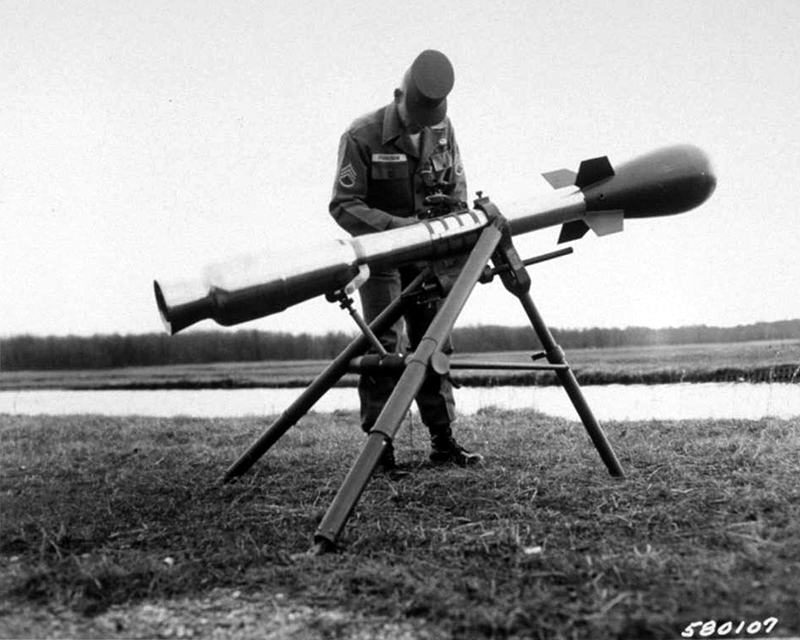
These were 5 outrageous uses of nuclear power during the Cold War
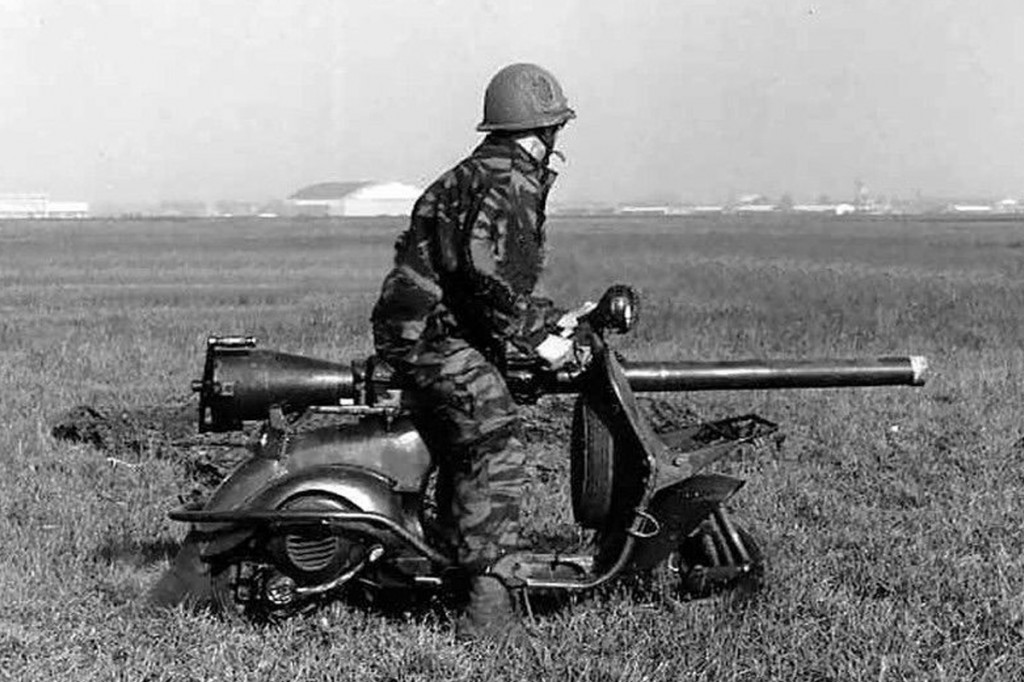
The French once put a cannon on a Vespa and sent it to war
Sandboxx News
-

‘Sandboxx News’ Trucker Cap
$27.00 Select options This product has multiple variants. The options may be chosen on the product page -

‘AirPower’ Classic Hoodie
$46.00 – $48.00 Select options This product has multiple variants. The options may be chosen on the product page -

‘AirPower’ Golf Rope Hat
$31.00 Select options This product has multiple variants. The options may be chosen on the product page -

‘Sandboxx News’ Dad Hat
$27.00 Select options This product has multiple variants. The options may be chosen on the product page
